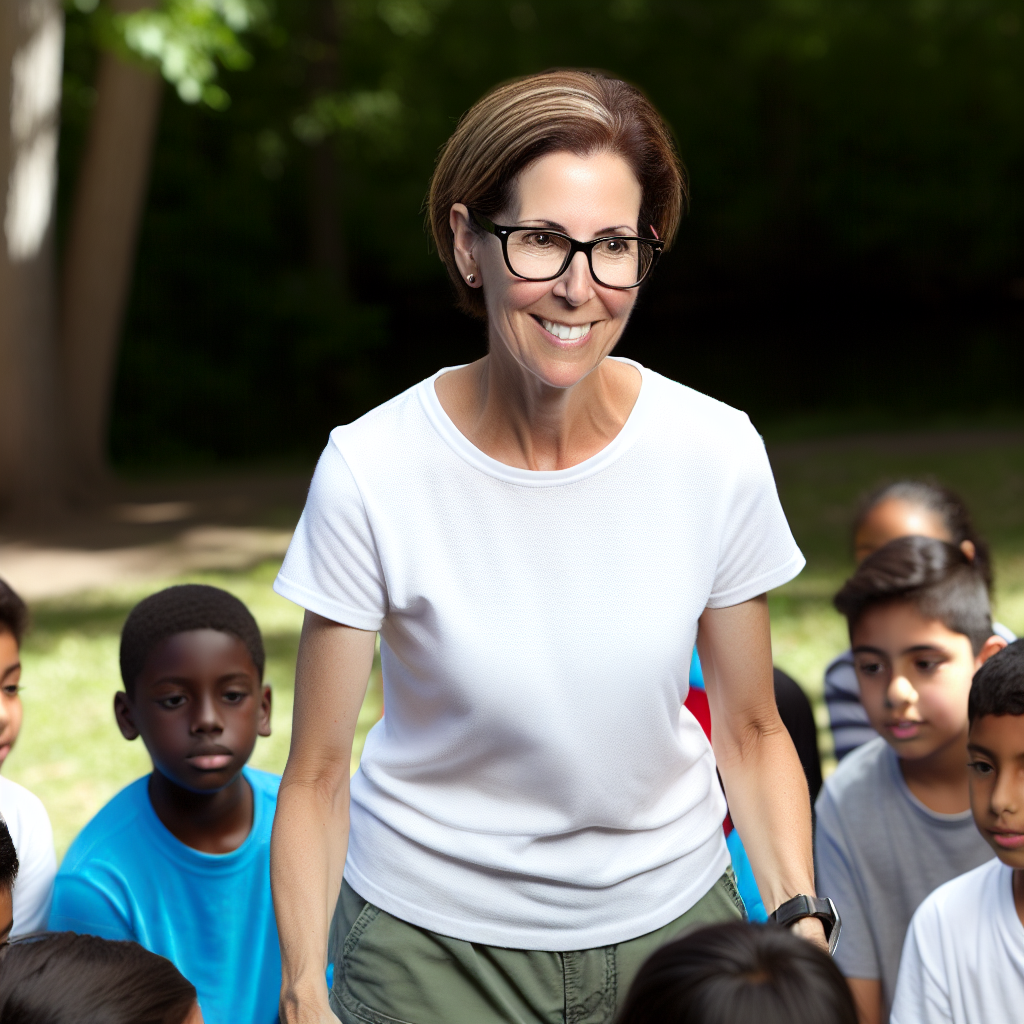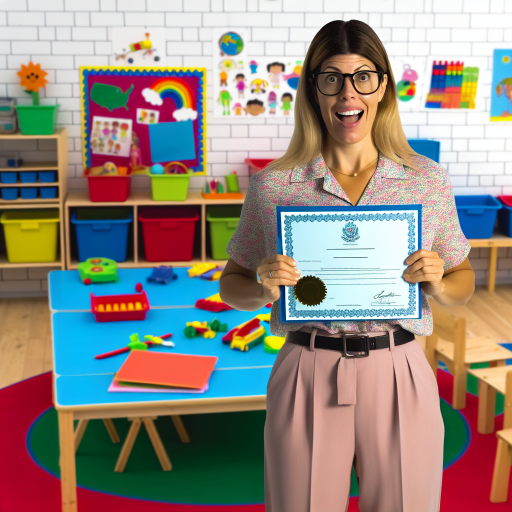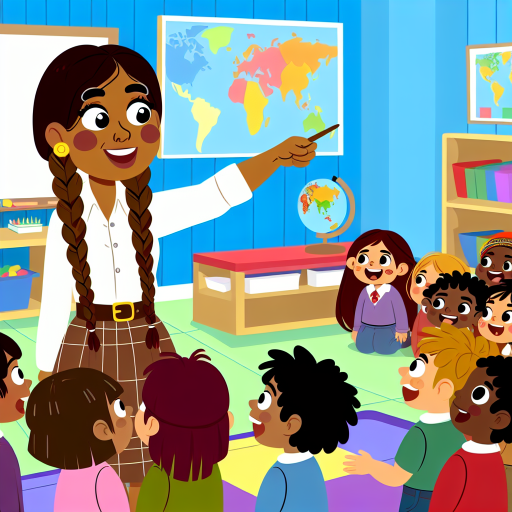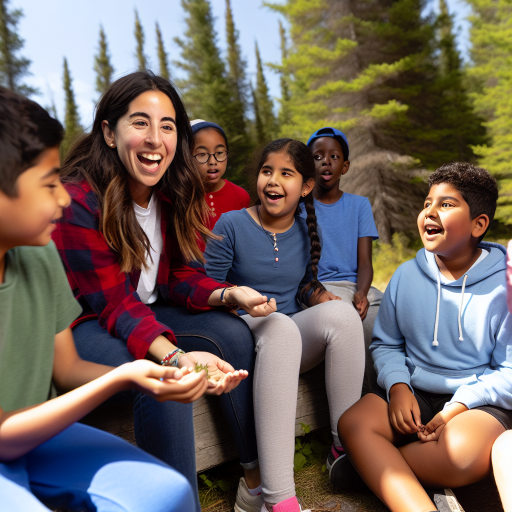Understanding the Role of a Youth Program Facilitator
Core Responsibilities
A youth program facilitator leads activities for young people.
This role involves planning, organizing, and executing programs.
Additionally, facilitators provide mentorship and guidance.
They create a safe and inclusive environment for participants.
Moreover, they promote teamwork and personal development skills.
Key Skills and Qualities
A successful facilitator must possess strong communication skills.
They should be able to engage with youth effectively.
Moreover, adaptability is crucial in this dynamic role.
Facilitators need to be patient and empathetic as well.
Additionally, strong problem-solving skills enhance their effectiveness.
Educational Background
An educational background in social work can be beneficial.
Moreover, psychology or education degrees provide relevant knowledge.
Certifications in youth development are also advantageous.
Continuing education helps facilitators stay current with trends.
Ultimately, relevant experience is often just as valuable.
Working with Diverse Populations
Facilitators often engage with a diverse group of youth.
Cultural competence enhances communication and trust building.
This skill ensures that all participants feel valued and heard.
Inclusive programming promotes respect and understanding among youth.
Furthermore, facilitators should understand the challenges diverse youth face.
Making a Positive Impact
Youth program facilitators play a vital role in community development.
They empower young people to become leaders in their communities.
Additionally, they foster life skills that benefit participants in the future.
Ultimately, their work contributes to reduced youth disengagement.
Facilitators help cultivate future generations of engaged citizens.
Unlock Your Career Potential
Visualize a clear path to success with our tailored Career Consulting service. Personalized insights in just 1-3 days.
Get StartedNecessary Skills and Qualifications for Aspiring Facilitators
Interpersonal Skills
Effective youth program facilitators possess strong interpersonal skills.
They build rapport with participants quickly.
Moreover, they create an inclusive environment for all.
Active listening skills enhance their ability to understand needs.
Additionally, empathy allows them to connect with youth effectively.
Organizational Abilities
Good facilitators excel in organizational skills.
They plan activities and schedules efficiently.
Furthermore, they manage resources and materials effectively.
Keeping track of deadlines ensures timely execution of programs.
Additionally, mapping out goals keeps everyone focused.
Communication Proficiency
Strong verbal and written communication skills are essential.
Facilitators clarify instructions and expectations clearly.
Moreover, they facilitate discussions that engage youth participants.
Public speaking abilities boost confidence in presenting materials.
Also, using positive language fosters motivation in participants.
Problem-Solving Skills
Facilitators frequently encounter unexpected issues.
Having strong problem-solving skills is crucial for success.
They assess situations quickly to devise appropriate solutions.
Moreover, they adapt activities based on group dynamics.
This flexibility keeps programs running smoothly.
Educational Background
A degree in education or social work is highly beneficial.
Courses in youth development enhance understanding of participant needs.
Additionally, training in facilitation techniques provides essential tools.
Certifications in youth programs add credibility to their qualifications.
Moreover, ongoing professional development keeps skills up to date.
Experience with Youth
Experience working with youth can set facilitators apart.
Volunteering or internships can provide valuable hands-on experience.
Additionally, leading youth-oriented projects builds confidence.
Such experience enhances their understanding of youth perspectives.
Furthermore, it equips them with practical strategies for engagement.
Exploring Different Types of Youth Programs and Their Impact
Types of Youth Programs
Youth programs fall into various categories, each serving unique needs.
Recreational programs focus on physical activity and team building.
Educational programs aim to enhance academic skills and knowledge.
Mentorship initiatives foster personal growth through guidance and support.
Leadership programs encourage youth to develop their leadership potential.
Social service programs emphasize community involvement and volunteering.
Importance of Recreational Programs
Recreational programs promote physical health among youth participants.
They also encourage social skills through teamwork and collaboration.
Moreover, these programs can reduce the risk of youth engaging in negative behaviors.
Many cities offer summer sports leagues and after-school activities.
Value of Educational Programs
Educational programs focus on literacy and numeracy skills for youth.
These programs often provide tutoring and homework assistance.
They can enhance youth’s confidence in academic settings.
Also, they prepare students for higher education and career pathways.
Benefits of Mentorship Initiatives
Mentorship programs build supportive relationships between mentors and youth.
Youth gain valuable knowledge and wisdom from experienced individuals.
This guidance can shape their personal and professional lives positively.
Many organizations match mentors with youth based on shared interests.
Impact of Leadership Programs
Leadership programs empower youth to take initiative in their communities.
Participants develop skills such as public speaking and decision-making.
These programs often involve community service projects and group activities.
Furthermore, they guide youth in setting and achieving personal goals.
Contribution of Social Service Programs
Social service programs encourage civic engagement among young people.
Youth learn the value of helping others and giving back to their communities.
These programs can foster a sense of belonging and purpose.
They often focus on local issues, including hunger and education access.
You Might Also Like: How Technology Is Changing the Role of Early Childhood Educators
Building Effective Communication Skills with Youth Participants
Understanding Youth Communication Styles
Youth participants often have unique communication styles.
Recognizing these styles enhances engagement.
Many teenagers prefer direct and straightforward dialogue.
Others may appreciate a more casual approach.
Adjust your communication to match these preferences.
Active Listening Techniques
Active listening is crucial for effective communication.
This involves giving your full attention to the speaker.
Acknowledge their thoughts and feelings regularly.
You can paraphrase to show understanding.
Additionally, ask clarifying questions for deeper insights.
Utilizing Body Language
Body language plays a significant role in communication.
Maintain eye contact to show you are engaged.
Use open gestures to appear more approachable.
Avoid crossing your arms, as this can seem defensive.
Moreover, nodding or smiling can encourage dialogue.
Encouraging Open Dialogue
Creating a safe space for sharing is essential.
Use positive reinforcement to boost confidence.
Encourage questions and different viewpoints.
Make sure youth feel their opinions are valued.
This fosters a collaborative environment for discussion.
Implementing Feedback Mechanisms
Feedback is vital for improving communication skills.
Solicit feedback from participants regularly.
Use anonymous surveys for honest opinions.
Incorporate their suggestions into future sessions.
This demonstrates your commitment to improvement.
Discover More: Exploring Workplace Settings for Early Childhood Educators
Strategies for Engaging Youth in Program Activities
Understanding Youth Interests
Begin by discovering what interests your participants.
Engage in conversations to learn about their hobbies.
Utilize surveys to gather information on preferred activities.
Incorporate their feedback into program planning.
This approach fosters a sense of ownership amongst youth.
Creating Interactive Activities
Design activities that promote active participation.
Encourage hands-on projects to enhance learning experiences.
Group work can stimulate collaboration and creativity.
Consider gamifying tasks to make them more enjoyable.
Interactive methods keep youths engaged and invested.
Establishing Positive Relationships
Build trusting relationships with the youth you facilitate.
Show genuine interest in their lives and aspirations.
Practice active listening to understand their perspectives.
Be approachable and open to discussions at all times.
Strong relationships create a supportive environment for growth.
Encouraging Leadership Opportunities
Empower youth by providing leadership roles within programs.
Encourage them to take charge of specific activities.
Offer mentorship to help them develop their skills.
Recognize and celebrate their contributions publicly.
Leadership responsibilities boost confidence and engagement.
Incorporating Technology
Utilize technology to connect with youth in innovative ways.
Integrate social media platforms for communication and updates.
Incorporate digital tools into projects for creativity.
Consider virtual meetups for those who cannot attend in person.
Adapting to technology enhances relevance and accessibility.
Evaluating Feedback for Improvement
Regularly seek feedback from participants about activities.
Use surveys and discussions to gather insights on their experiences.
Analyze feedback to identify areas for improvement.
Implement necessary changes to enhance future programs.
This practice demonstrates that their voices are heard and valued.
You Might Also Like: Daycare vs. Preschool Roles for Early Childhood Educators
Networking and Mentorship Opportunities in Youth Facilitation
Importance of Networking
Networking opens doors for aspiring youth facilitators.
It connects individuals with seasoned professionals in the field.
Building relationships can lead to valuable job opportunities.
Furthermore, networking enhances knowledge-sharing among peers.
Where to Network
Local community centers often host events focused on youth programs.
Attending conferences allows facilitators to meet industry experts.
Online platforms such as LinkedIn offer groups for youth facilitation.
Social media can also serve as a powerful networking tool.
Finding Mentorship
A mentor can provide guidance in your career journey.
Look for mentors through professional organizations in youth work.
Many experienced facilitators enjoy mentoring newcomers.
Be proactive in seeking out mentorship opportunities.
Ways to Cultivate Mentorship Relationships
Start by reaching out to professionals you admire.
Ask thoughtful questions to demonstrate your interest.
Participate actively in mentorship programs offered locally.
Regular communication is key to maintaining a rewarding relationship.
Leveraging Your Connections
Use your network for feedback on your facilitation skills.
Ask for referrals that can help advance your career.
Collaborate on projects with contacts in your network.
Sharing experiences can lead to new learning strategies.
You Might Also Like: Best Practices for Early Childhood Educator Professional Growth

Developing a Personal Philosophy of Youth Engagement
Understanding the Role of a Youth Facilitator
A youth facilitator plays a crucial role in shaping young lives.
This role requires passion and commitment to youth development.
Moreover, it demands effective communication and empathy.
Understanding youth needs is essential.
Facilitators should create a safe and welcoming environment.
Identifying Core Values
Your philosophy of youth engagement begins with identifying your core values.
Reflect on what drives your passion for working with young people.
Consider values such as respect, inclusion, and empowerment.
Write down these values to clarify your guiding principles.
Establishing Relationships
Building relationships is fundamental for effective engagement.
Start by listening actively to the youth you work with.
Encouragement and validation foster trust.
Additionally, cultivate open dialogue to promote understanding.
Creating a Supportive Environment
A supportive environment enhances youth engagement.
Incorporate activities that promote teamwork and collaboration.
Ensure that all young people feel valued and heard.
Recognize individual differences and celebrate diversity.
Reflecting on Practice
Regular reflection on your practice is vital for growth.
Seek feedback from peers and the youth you facilitate.
Observe what works well and what needs improvement.
This process strengthens your effectiveness as a facilitator.
Continuing Education and Skill Development
Your journey as a facilitator requires ongoing education.
Attend workshops, seminars, and training sessions.
Stay updated on best practices in youth engagement.
Additionally, connect with other professionals in the field.
Navigating Challenges in Program Facilitation and Conflict Resolution
Understanding Common Challenges
Program facilitators often encounter various challenges.
These challenges can arise from group dynamics.
For instance, disruptive behaviors can hinder progress.
Moreover, diverse opinions may lead to conflicts.
Additionally, time constraints can complicate facilitation.
Developing Effective Conflict Resolution Skills
Mastering conflict resolution is essential for facilitators.
Begin by actively listening to all participants.
This practice builds trust and understanding.
Moreover, encourage open dialogue about differing perspectives.
Facilitating respectful discussions promotes resolution.
Implementing Strategies for Smooth Facilitation
Planning is key to effective program facilitation.
Start with clear objectives for each session.
Share these objectives with participants upfront.
Additionally, establish ground rules to guide discussions.
Encouraging participant engagement fosters a collaborative environment.
Utilizing Feedback for Continuous Improvement
Feedback plays a vital role in refining facilitation techniques.
After each session, seek input from participants.
Encourage them to share their thoughts on the process.
Utilizing feedback helps identify areas for improvement.
Furthermore, implement suggested changes in future sessions.
The Importance of Cultural Competence in Youth Programs
Cultural Awareness and Understanding
Cultural competence starts with recognizing diverse backgrounds.
Understanding cultural differences fosters respect among participants.
When facilitators value diversity, they enhance engagement.
This approach cultivates an inclusive environment for all youth.
Effective Communication
Culturally competent facilitators effectively communicate with diverse groups.
Using inclusive language shows respect and understanding.
Facilitators should adapt their communication styles as needed.
This adaptation improves connections with participants.
Building Trust and Relationships
Cultural competence helps facilitators build trust with youth.
Trust encourages open dialogue and honesty in discussions.
Positive relationships enhance group dynamics and collaboration.
Youth feel valued when their cultural backgrounds are acknowledged.
Adapting Activities for All
Facilitators should design activities that celebrate diversity.
Inclusive programming meets the interests of all participants.
This approach allows everyone to engage and participate fully.
When activities reflect diverse cultures, they become more relatable.
Continuous Learning and Growth
Cultural competence is an ongoing journey for facilitators.
Continuous education and training enhance understanding of diversity.
Facilitators should seek feedback to improve their approaches.
Staying informed about cultural trends fosters adaptability.
Creating a Strong Resume and Portfolio for Youth Facilitation Roles
Understanding Key Qualifications
A strong resume highlights essential qualifications clearly.
Focus on skills relevant to youth facilitation.
Communication, leadership, and empathy are crucial.
Additionally, experience working with youth is significant.
Structuring Your Resume
Start with your contact information at the top.
Follow with a compelling summary statement.
This statement should outline your passion for youth work.
Next, list your core competencies in a dedicated section.
Include skills like conflict resolution and teamwork.
Detailing Your Experience
In the experience section, prioritize relevant positions.
Quantify your accomplishments where possible.
For example, mention any workshops you facilitated.
Also, highlight your role in planning youth activities.
Use action verbs to convey your contributions effectively.
Showcasing Your Education
List your educational background after work experience.
Include any degrees related to education or social work.
Certifications in first aid and youth development matter.
Crafting a Compelling Portfolio
A portfolio complements your resume by showcasing your work.
Include sample lesson plans and activities you designed.
Incorporate feedback from participants or colleagues.
This evidence demonstrates your effectiveness as a facilitator.
Utilizing References Effectively
References can enhance your application significantly.
Choose individuals who observed your work closely.
Ask your references for permission in advance.
List their names, titles, and contact information on your resume.
Formatting for Impact
Keep your resume clear and professional in appearance.
Use a clean font and organized layout for easy reading.
Be mindful of the length; ideally, stick to one page.
Highlighting Continuous Learning
Employers value candidates who pursue ongoing education.
Include workshops or training programs you’ve attended.
This indicates your commitment to personal and professional growth.




